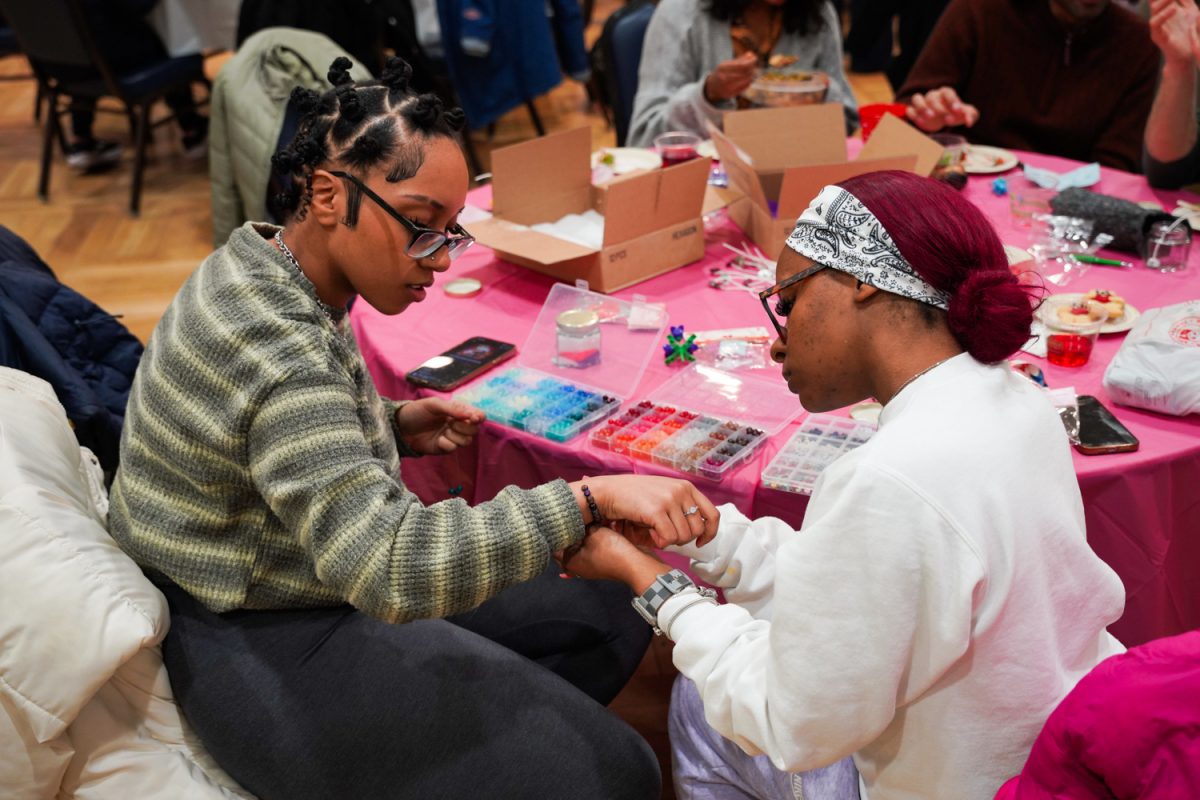Kali Uchis released “Orquídeas,” her third album in four years, on Jan. 12.
Uchis dropped the album after announcing her first pregnancy with Don Toliver the day before. Throughout “Orquídeas,” Uchis dives into her distinct dreamlike sound while showing her Colombian culture.
Her second Spanish-language album, featuring 14 tracks and a runtime of 44 minutes, is genre-bending and holds traits from reggaeton, R&B and Latin urban.
These influences can be heard on many tracks, starting with “Muñekita” with Dominican rapper El Alfa and Floridian rapper JT of rap duo City Girls.
“Muñekita” jumps in with a tough Rosalía-reminiscent beat which easily transcends into the first lines through a Caribbean bounce. This combination of reggaeton and dembow, a genre derivative of Jamaican dancehall, makes for a unique groove that would likely possess any listener to get moving.
Get The Daily Illini in your inbox!
On the other side of the “Orquídeas” spectrum is “Te Mata,” the sixth track on the album. The song takes us back in time to the style of bolero, a genre that originated in Cuba and is characterized by themes of love and loss.
In “Te Mata,” Uchis depicts herself as a “diabla,” or “devil,” in a tragic love story. She finds herself mistreated, eventually gaining her wings and leaving her lover beside himself with anguish. The tender Spanish guitar and the subtle jaunt of the percussion paint this human drama masterfully.
Uchis reaches back to her R&B roots for one track with “Heladito,” a title that translates to “ice cream.” The twinkle of the chimes, the suaveness of the bass guitar and the swell in the strings create a soundscape akin to Erykah Badu.
This mystical sound can be heard in Uchis’ music since her debut album “Por Vida” in 2015. The third track, “Melting” — which also mentions ice cream — uses a combination of ringing synths and an airy quality in her voice.
Track five “Diosa” starts right off the bat with the lyric, “Tú sabes bien que soy mucha mujer,” which translates to “You know well that I am a lot of woman.” This concept of feminine power and superiority boasts throughout the song, with Uchis calling herself a goddess and a diva while her lover is subject to her every whim.
On “Labios Mordidos” with Colombian singer KAROL G, Uchis continues this theme with a seductive tone. The Reggaeton track compares their presence with the femme fatale characters of Quentin Tarantino’s films.
“Una muñequita de una peli ’e Tarantino/ Dale bien suave, estás advertido,” Uchis sings on the track.
All through the album she battles with love and limerence, which is crystal clear on the track “Me Pongo Loca,” meaning “I get crazy.” Over a steady dance beat, Uchis refuses to suppress the intensity of her emotion, unlike her lover.
The last track is split into two parts. On “Dame Beso,” she asks for kiss after kiss over an homage to ’90s merengue. The band speeds things up, evolving into “Muévete” in the blink of an eye. Uchis invites the listener to escape the loss by asking us to come to dance with her and forget.
Throughout “Orquídeas,” Kali Uchis solidifies her reputation as a bright mind in the music industry, taking prideful strides in every water Latin music has to offer.
Using echoing laughter, modulated voices and soft-spoken harmonies, Uchis creates a world that is somehow ominous yet sparkly. The album rings of themes concerning confidence, obsession and love.
Her lyricism, mystical cadence and production dare you to listen and consequently dance.









